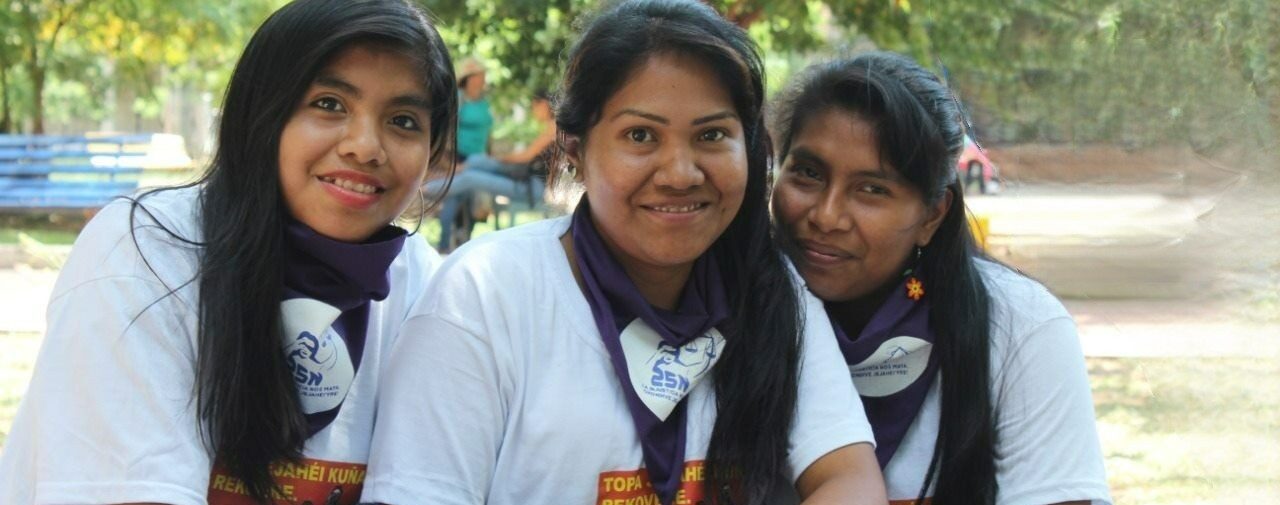Founded in 1999 | Thousand Currents Partner since 2023
Coordinadora Nacional de Organización de Mujeres Trabajadoras, Rurales e Indígenas (CONAMURI)
Mobilizing rural, peasant and Indigenous women towards food sovereignty
The Coordinadora Nacional de Organizaciones de Mujeres Trabajadoras, Rurales e Indígenas (CONAMURI) is a grassroots movement that organizes peasant, Indigenous, and working class women to defend food sovereignty, women’s rights and economic, social, cultural and environmental rights in 12 provinces in Paraguay.
CONAMURI is looking for solutions to poverty, racism, and exclusion based on class, ethnicity, and gender while focusing on defending peasant and Indigenous women’s rights through food sovereignty, agroecology, the protection of Indigenous seeds, and the recovery of ancestral knowledge. They seek social transformation by improving the living conditions of women, ensuring respect for Indigenous peoples and incorporating their cosmovision.
CONAMURI’s main lines of work are:
- Resisting threats from agribusinesses and multinational corporations
- Ancestral seed recovery, reproduction and conservation
- Impacts on rural women (i.e. hunger, violence, illiteracy, maternal mortality, and workload).
CONAMURI has been at the frontlines confronting agribusinesses threats such as monoculture plantations, growth of genetically modified crops and use of chemical pesticides. They do this by using advocacy, popular education, alliance building, campaigning and direct action in favor of food sovereignty, agroecology and dignified work conditions. Their campaign to protect seeds “Ñamomarete Ñane Ñane Ñemity Oĩ Hag̃ua Tekokatu” was organized by young professionals trained in agroecology and resulted in CONAMURI being recognized as the Guardian of Native and Creole Seeds in Paraguay. They are also in charge of the Instituto Agroecológico Latino Americano Guaraní, which is part of the CLOC-LVC agroecology schools.
Land and territory, healthy food production and environmental protection are at the core for CONAMURI’s work adopting peasant and popular feminism as a core concept that informs and guides their work. They organize the Escuela de Mujeres India Juliana, a popular education school that has trained Indigenous women on issues like women’s rights, political economy, popular communication, health, and intercultural justice. CONAMURI is estimated to currently have 700 members.

